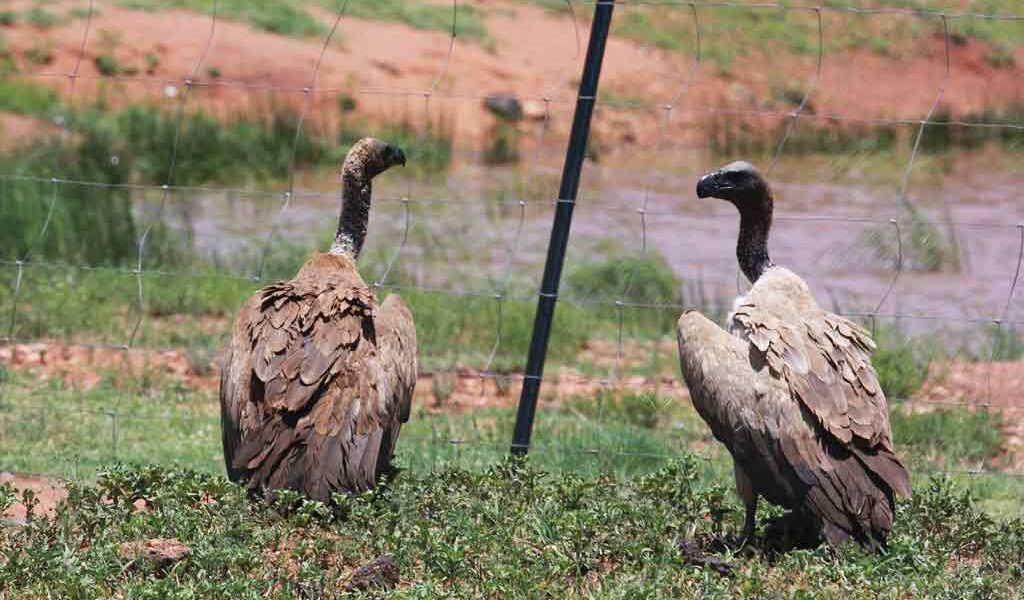QUEEN MOSARWE
Birdlife Botswana director Dr Kabelo Senyatso says government is to be blamed for the extinction of vultures in the country. Senyatso said government, through the Ministry of Agriculture (MoA) provides farmers with pesticides they use to poison predators whose carcasses are then eaten by vultures.
“The single biggest threat to a lot of our birds is agriculture where chemicals are used to try and control qualia in crop fields ,” he stated, explaining that Botswana had 600 bird species, 30 of which were globally threatened and a large majority of them being vultures which he says are facing extinction in this country.“ Africa has 11 species of vultures which all of them are declining and not long will these vultures go extinct,” he said.
Senyatso however conceded that farmers do not intentionally kill the vultures.“ The pesticides that farmers are given by the Ministry of Agriculture are not to intentionally kill vultures. It is only that some farmers have discovered that the same can be used to retaliate against predators such as hyenas, lions, jackals which try and kill their livestock.” He explained that they get reports of poisoned vultures almost every week, giving the example of an incident that happened near Maun where about 120 vultures were killed by a farmer target lions.“ Last week Wednesday we received a call from Masunga where 36 vultures were killed by a farmer trying to kill carnivores,” he added.
Senyatso however said that there was a type of deliberate poisoning by poachers who intentionally set out to kill animals.“Poachers cut off tusks of elephants and rhinos and then deliberately poison the carcass.” Recently two elephants were poached outside Chobe National Park where the carcasses were poisoned. According to Senyatso, one poisoned elephant carcass kills up to 500 vultures per incident. Vultures, he explained are poisoned to stop them from alert anti poaching parties of dead animals.
Considering the important role they play in the ecosystem, like reducing the spread of anthrax, rabbis botulism and others, Senyatso said it was important for government to understand the full consequence of vulture extinction: “Predators would increase, creating conflict with farmers and so will the increase in incidences of diseases.”
Birdlife Botswana suggests as a recommendation for government to strengthen legislation to regulate the use of chemicals used to kill animals. “We are also advocating for better control of offending chemicals given by the Ministry of Agriculture,” explained Senyatso who declined to mention the specific chemicals. He said they were engaging the ministry to ban some of chemicals from the market altogether.
Ministry of Environment, Wildlife and Tourism Public Relations Officer Alice Mmolawa however said they were not aware of the pesticides in question but acknowledged that there was the deliberate poisoning of vultures by poachers, which she said illustrated the level of sophistication employed by organized poachers.
Due to the inadequacy of current agrochemical and environmental policies, Mmolawa said that the
Wildlife Conservation and National Parks Act was currently being reviewed to introduce appropriate and stiff penalties for poisoning and other wildlife crimes. She said education and awareness were the only means to address the problem in the meantime, “Hence, the Ministry is working with relevant stakeholders to educate farmers and the public on the value of wildlife and proper uses of agrochemicals,” she said.
Meanwhile, efforts to contact the Ministry of Agriculture were futile at the time of going to print as they had not responded to enquires.

